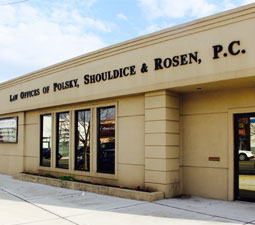What To Do After Your Workplace Accident
On-the-job accidents, by definition, are unplanned, unwanted yet controllable events that can both disrupt work and cause injuries. Every year, thousands of workers are injured in the workplace, but most of these accidents are preventable (see the most common workplace accidents).
When a workplace injury happens, one of the most important first steps is for your employer to carry out an accident investigation. The main reason for having an investigation is to discover what happened, why it happened and to find out how a similar problem can be prevented in the future
For injured employees who may be eligible for Workers' Compensation, a proper investigation is an important and necessary step for supporting your case.
It's Not About Blame
Trying to uncover the facts around why the accident happened is not about finding someone to blame. It is about discovering the facts of the case, so management can try to keep the workplace safe. For example, if a worker hurt his or her back while lifting a heavy box, the issue shouldn't simply be brushed off as employee carelessness. Questions should be asked around why and how this injury happened?
Some critical questions could include:
- Was the employee properly trained on safe lifting techniques?
- Was he or she rushed and stressed when carrying out this task (perhaps because of doing extra work)?
- Was he or she lifting more weight than normal because of equipment problems?
There is rarely one clear cause of an accident, so it is important to look critically at the issue without making assumptions.
Why Investigate?
Taking a closer look at on-the-job issues can help both employees and employers.
Some of the benefits include:
- Helping prevent future accidents
- Finding and removing hazards
- Exposing equipment problems
- Uncovering problems with the work process
- Helping employee morale and productivity
- Meeting legal and safety requirements
For employees who may receive Workers' Compensation, accident investigations also help document key facts, including:
- When the problem happened
- Where it happened
- What factors might have contributed
- Did someone witness the accident? Do they have helpful information?
How The Process Works
After an accident, the first priority should be to tend to the injured worker (for example, by giving first aid or calling for emergency care). The issue should also be reported to the appropriate personnel within the company.
After reporting the accident, an investigation should begin as soon possible to gather necessary facts and evidence. The process typically includes steps such as:
- Alerting authorities, as needed
- Assembling a team to investigate
- Documenting the scene (taking photos, drawing sketches, writing notes)
- Interviewing witnesses
- Reviewing the company's accident prevention plan
- Checking safety equipment
- Looking for root causes of the problem
- Documenting findings
- Issuing a report, with recommendations for safety improvements
An expert attorney can help you better understand what report details might be relevant to your case.
Who Investigates The Accident?
To help reduce the possibility of bias, an investigation team should include a mix of management and workers. A typical team might feature:
- A team lead
- Subject experts (those who understand the site and specific issues at hand)
- Outside experts
- A safety officer
- Documentation personnel
- Legal counsel
- Shop Stewards
- Union reps (if applicable)
An employee's direct supervisor may or may not be on the team.
Findings That Can Help Your Case
An investigation report can reveal possible on-the-job issues that could be relevant to your Workers' Compensation case.
Relevant points may include:
- Did equipment fail?
- Were precautions taken to keep machinery safe?
- Were hazardous materials properly identified?
- Was an employee exposed to environmental hazards (such as problematic noise, fumes or dust)?
- Were employees given proper safety training?
- Were employees overworked or stressed?
- Were safety procedures documented and enforced?
Uncovering the answers to these questions may be helpful to both your Workers' Compensation lawyer, as well as to management responsible for keeping the workplace safe.
Have A Question?
Investigating your accident shouldn't be a source of stress or intimidation. Investigations should help to establish the facts around your case. If you have been injured at work and have any questions about your case, talking to a Workers? Compensation lawyer will be helpful.
Disclaimer: For informational purposes only. This is not a substitute for legal advice. If you need legal advice please contact us.


